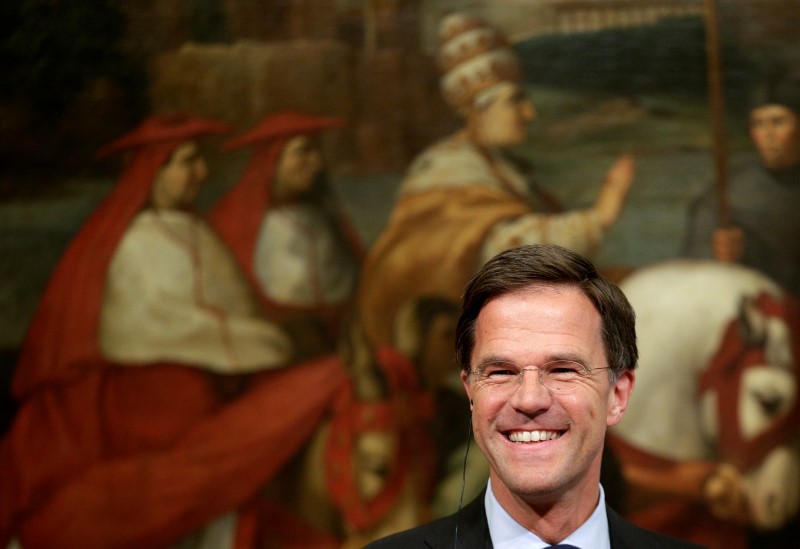By Gabriela Baczynska and Robert-Jan Bartunek
BRUSSELS (Reuters) – Dutch Prime Minister Mark Rutte asked European Union leaders on Tuesday for “legally binding” assurances to address his country’s concerns over a trade and association deal with Ukraine and said The Hague would block it otherwise.
The Netherlands is the only EU state not to have ratified the bloc’s agreement on closer political, security and trade ties with Kiev following a referendum in April in which the Dutch voted overwhelmingly to reject it.
The agreement with Kiev, reached after Russia annexed Crimea from Ukraine in March 2014 and then backed rebels fighting government troops in the east of the country, is being provisionally implemented now, but its future hinges on the Netherlands.
“What we need is a legally binding solution, which will address the many worries and elements of the discussion in the Netherlands leading up to the referendum,” Rutte said after an EU leaders’ summit in Brussels to discuss the aftermath of Britain’s vote last week to leave the bloc.
The debate around the referendum in the Netherlands, which showed dissatisfaction with Rutte’s government and policy-making in Brussels, zeroed in on whether the agreement with Kiev would herald EU membership for Ukraine and its 45 million people.
“The exact form – I don’t know yet,” Rutte said. “It could be that we have to change the text, it could be that we can find a solution which will not involve changing the text of the association agreement. I don’t know yet.
“If I am not able to achieve that … we will not sign,” he said. “We will try to find a solution, it will be difficult, the chances are small that we will get there but I think we should try.”
The whole deal could be derailed should The Hague refuse to ratify it, but a senior EU official said he hoped this could be solved by the end of the year.
The Netherlands will hold parliamentary elections next March, with Rutte’s rating going down as he faces growing pressure from the anti-immigration, eurosceptic Party for Freedom (PVV) of Geert Wilders.
The Brexit vote – which cast into doubt Europe’s post-Word War Two order, sent global stocks tumbling and triggered a political meltdown in Britain – has increased pressure on Rutte to show he is moving on his own people’s call.
Two diplomats said after the talks that one idea was to give Rutte a declaration of the other EU leaders that the Ukraine deal was “no basis” for membership in the bloc.
The Dutch government was expected to come back to the EU with more detailed proposals, and leaders could come back to that this autumn.
(Additional reporting by Alastair Macdonald; Writing by Gabriela Baczynska; Editing by Dominic Evans and Leslie Adler)


